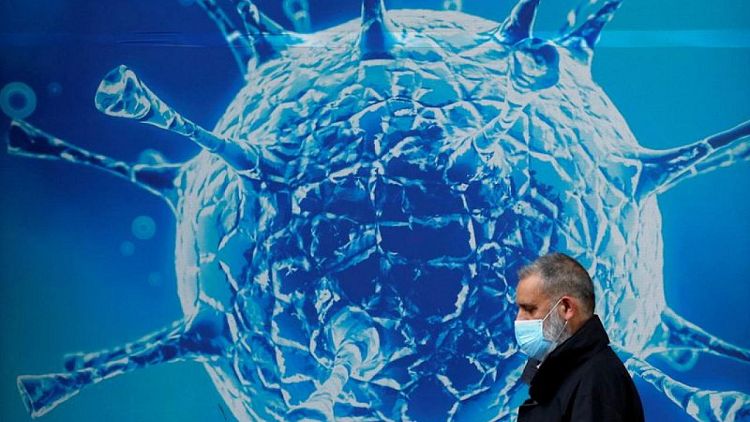By Sangmi Cha
SEOUL - People infected with the more transmissible Delta variant have a viral load 300 times higher than those with the original version of the COVID-19 virus, when symptoms are first observed, a South Korea study found.
But the amount gradually decreased over time - to 30 times in four days and over 10 times in nine days - and it matched levels seen in other variants after 10 days, the Korea Disease Control and Prevention Agency (KDCA) said on Tuesday.
The higher load https://www.reuters.com/business/healthcare-pharmaceuticals/people-with-allergic-reaction-mrna-vaccines-can-get-2nd-dose-delta-viral-load-2021-07-26 means the virus spreads far more easily from person to person, increasing infections and hospitalisations, a health ministry official Lee Sang-won told a news conference.
"But it doesn't mean Delta is 300 times more infectious...we think its transmission rate is 1.6 times the Alpha variant, and about two times the original version of the virus," Lee said.
The Delta variant of the novel coronavirus was first identified in India and the Alpha variant in the UK.
To avoid the spread of the Delta variant, now the dominant strain https://www.reuters.com/business/healthcare-pharmaceuticals/delta-covid-variant-now-dominant-worldwide-drives-surge-us-deaths-officials-2021-07-16worldwide, the KDCA urged people to immediately get tested when developing COVID-19 symptoms and avoid in-person meetings.
The rapid spread of the Delta variant and low vaccination rates have caught much of Asia off-guard, especially in emerging markets, even as economies in Europe and North America reopen.
The study compared the viral load of 1,848 patients infected with the Delta variant with 22,106 people who had other strains.
South Korea reported 1,509 new coronavirus cases for Monday, raising the total to 239,287 infections, with 2,228 deaths.
It has vaccinated 51.2% of its 52 million population with at least one dose of a vaccine, while 23.9% have been fully vaccinated.
